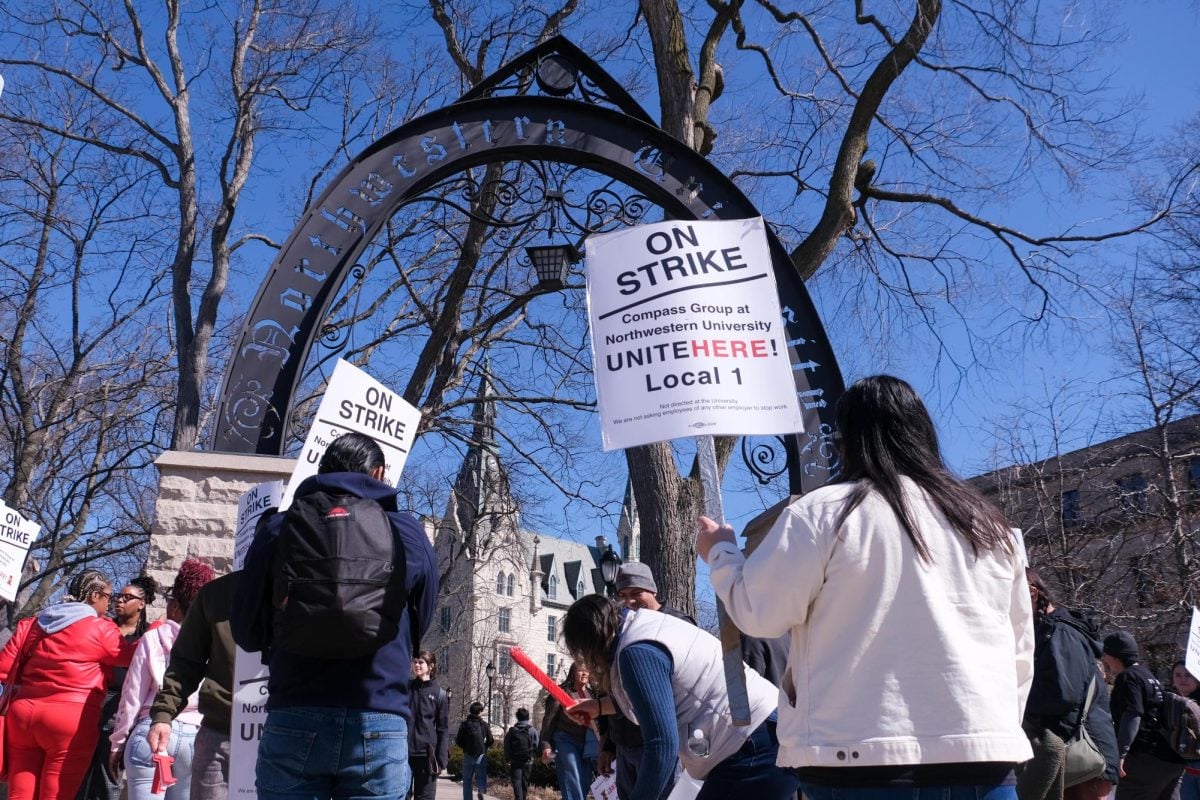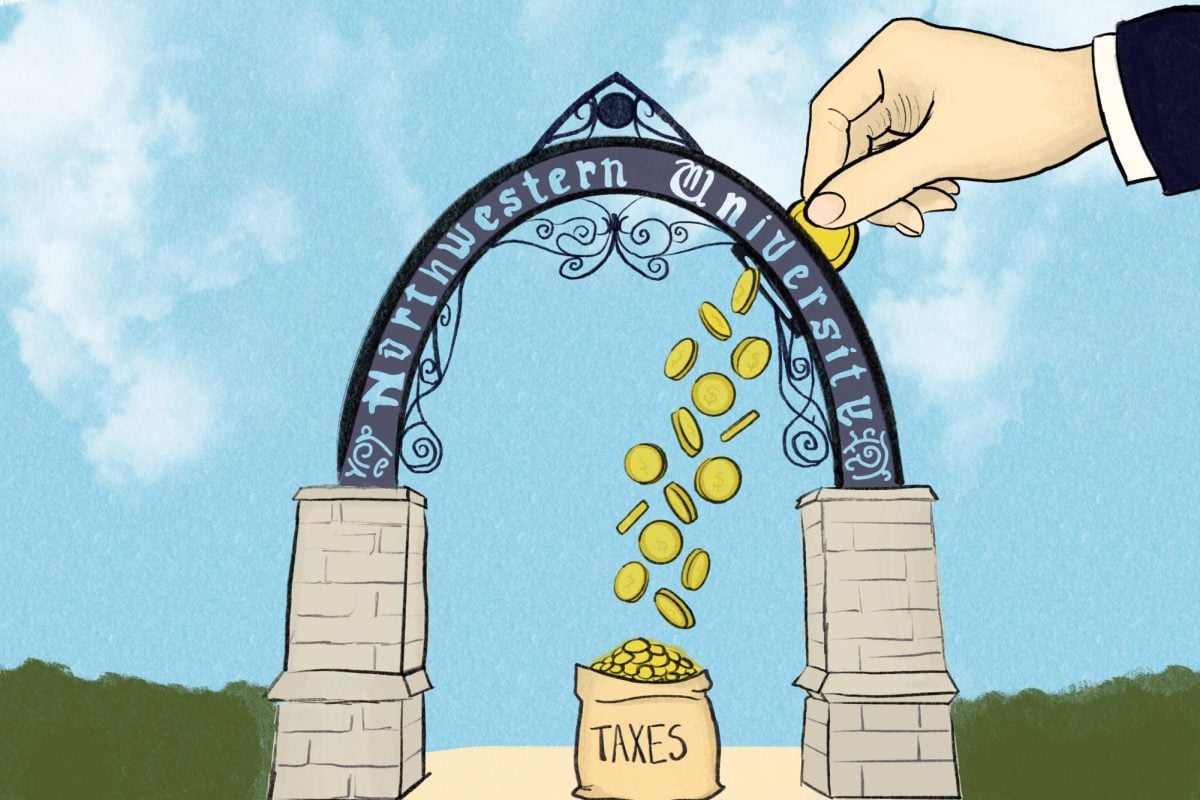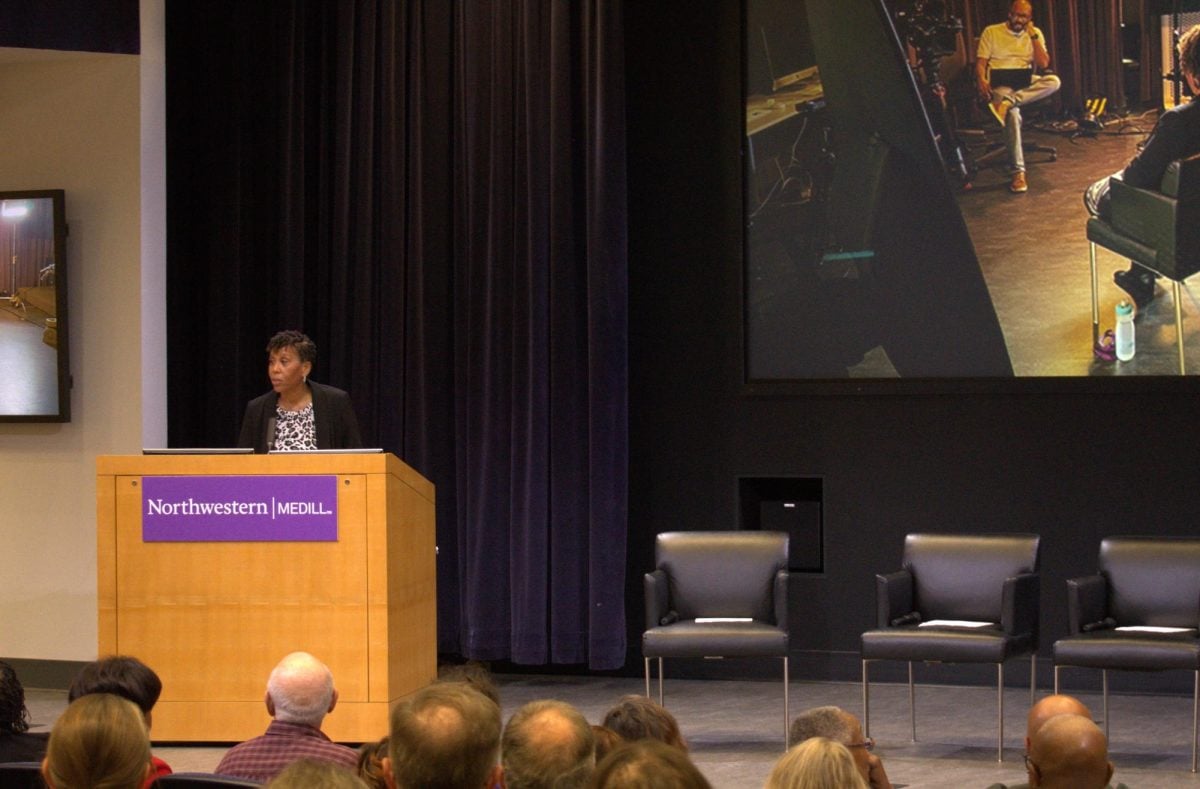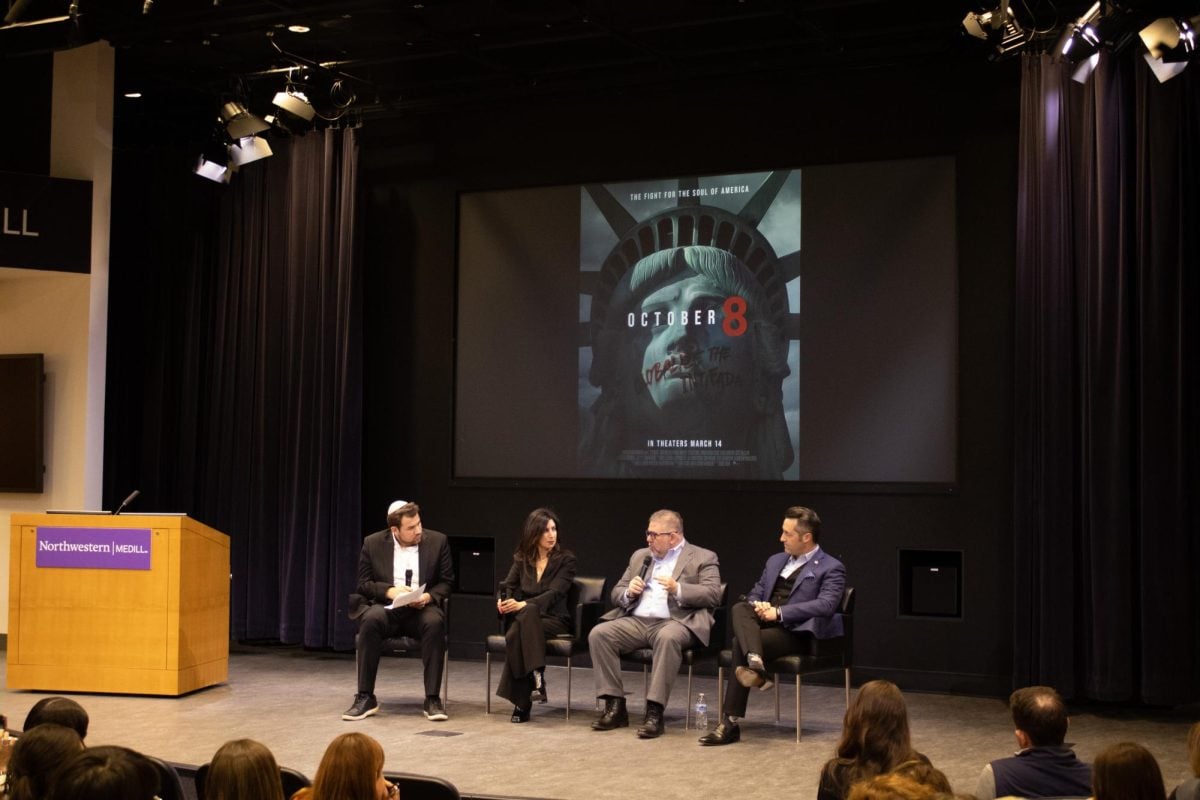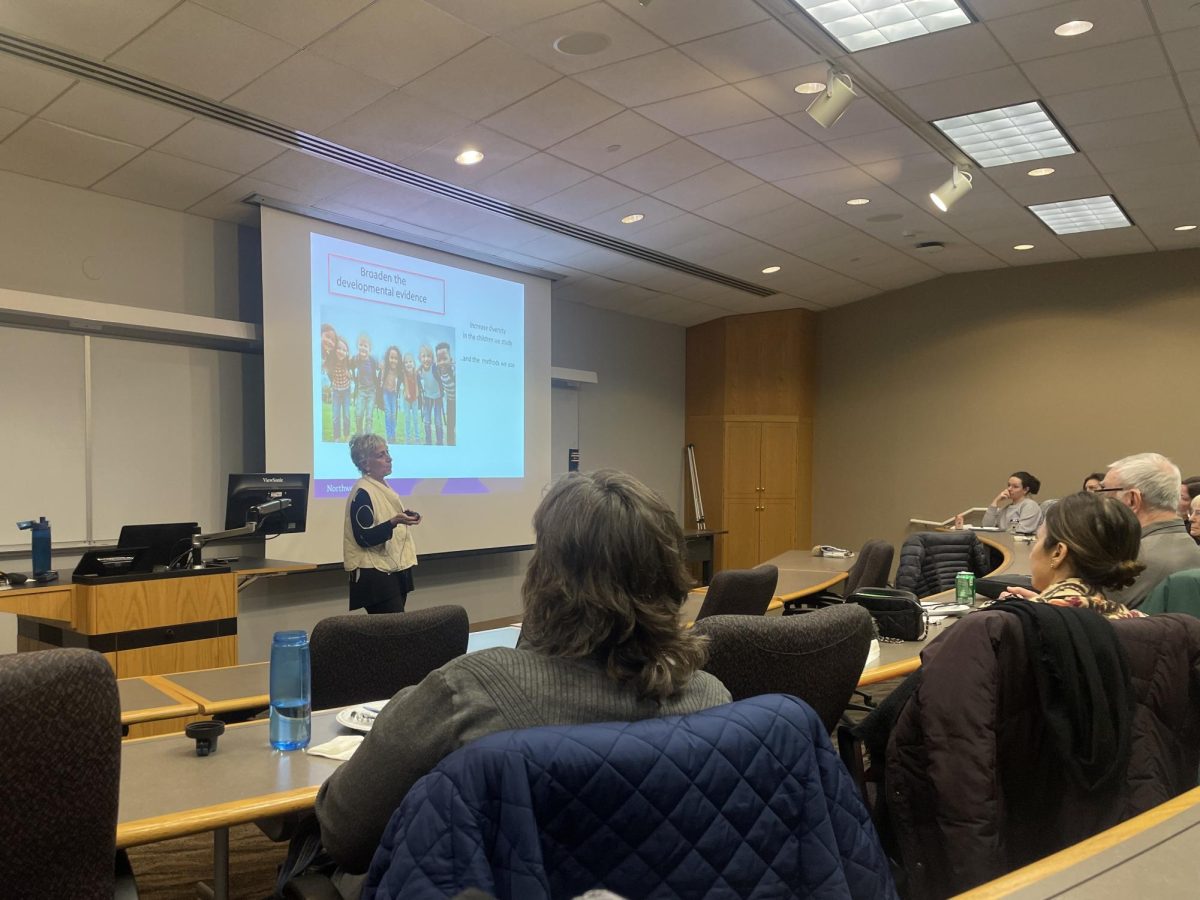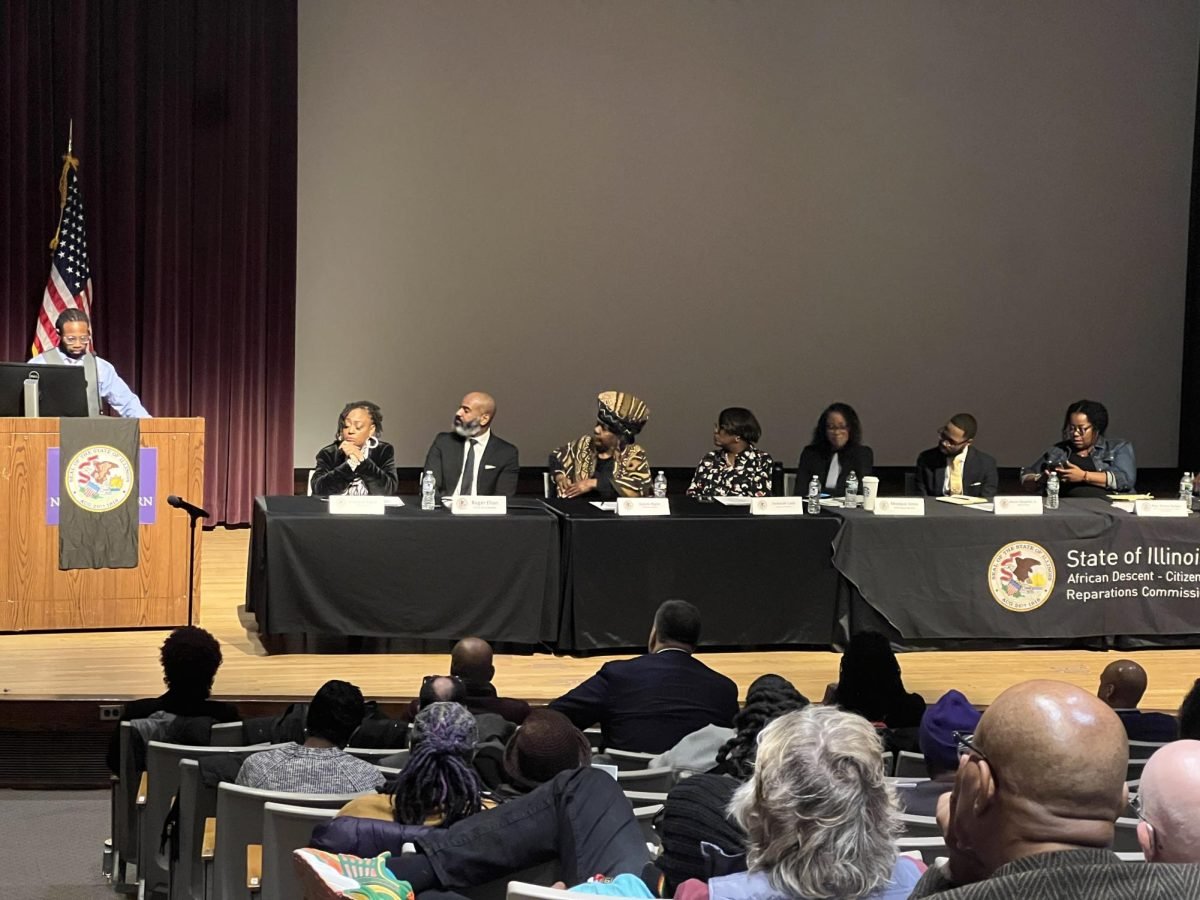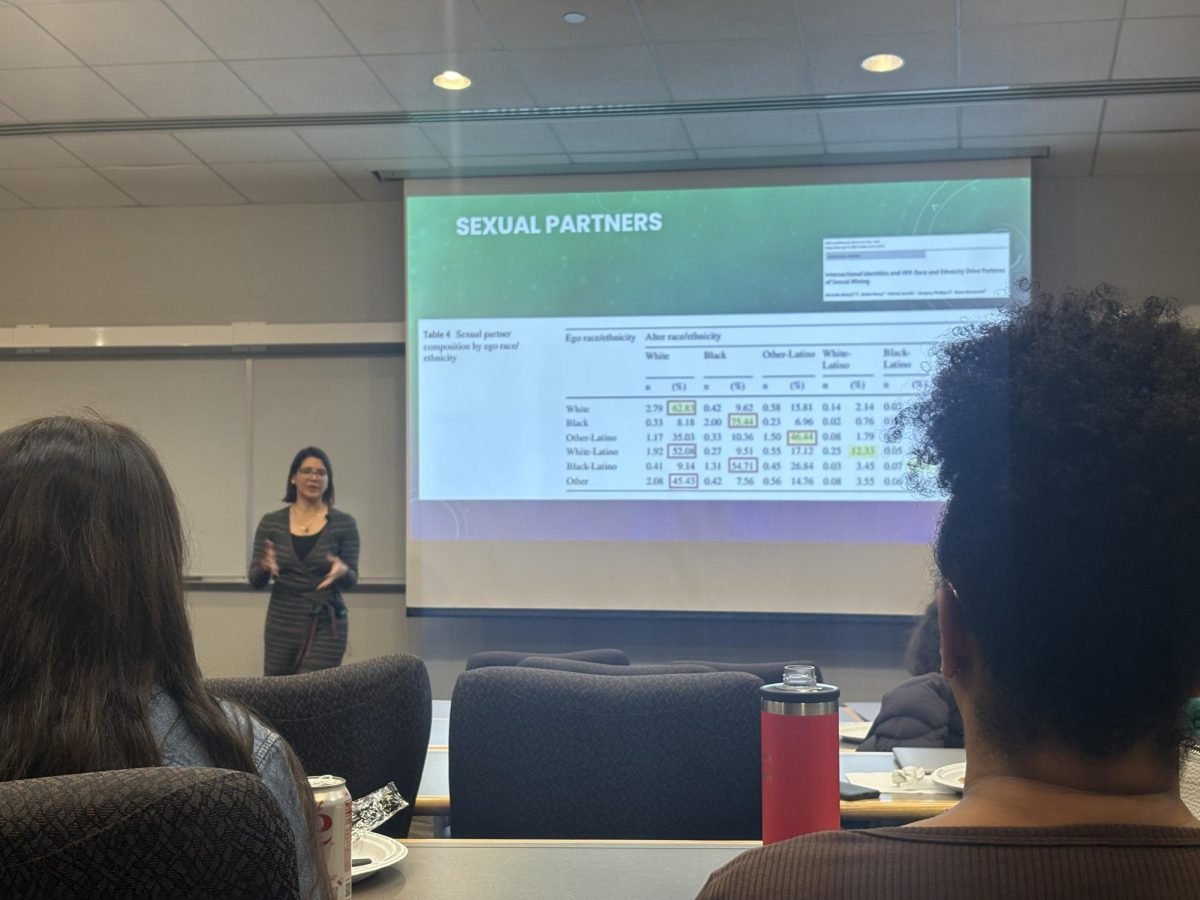After more than a year of putting their lives on the line to report in Syria, writers C.J. Chivers and Ben Hubbard were awarded the 2012 Medill Medal for Courage in Journalism on Thursday.
Both reporters discussed their experiences covering the Syrian conflict and others like it. About 200 people packed the McCormick Tribune Center Forum for the event.
The Medill Medal for Courage in Journalism was established 10 years ago to recognize journalists who display great bravery with their reporting. Chivers and Hubbard faced similar threats to their own personal safety while working for The New York Times and The Associated Press, respectively. Both journalists now work for The New York Times.
The two writers spoke about reporting in Syria and risking their lives for accurate, in-depth information. They had to gain the trust of rebel groups and report through constant threats.
After receiving his award, Chivers humbly credited the Syrians who made their work possible.
“This award should not just go to us,” Chivers said. “There is no way we could have done what we did without a lot of other people.”
Chivers and Hubbard emphasized the need for a formal journalism education before covering such a conflict, speaking about the rise in gung-ho writers who seek to take “shortcuts” in their careers by covering wars and violence.
“This isn’t where you should start,” Hubbard said. “You should start in places where you learn these basics of how journalism works.”
Both earned post-graduate degrees in journalism. In their speeches, they spoke about the necessity of using non-journalism skills when reporting. Hubbard speaks Arabic and attested to the importance of knowing another language to his reporting. Chivers is an ex-Marine and therefore understands battlefield situations.
Both Hubbard and Chivers said they couldn’t come up with a solution for the situation in Syria.
“Civil wars happen for a reason,” Hubbard said. “There are no easy answers to solve what is going on in Syria.”
Chivers agreed and spoke about the horrors a reporter experiences on a daily basis while covering conflict.
“War is a terribly corrupting force,” Chivers said. “Syria puts that in front of you every time you go there.”
In order to protect the Syrians who helped him, Chivers said he would not return to the country.
Medill freshman Marlene Lenthang called the event “eye-opening.”
“They were able to do some groundbreaking work there and taught us a lot of things,” she said.
Email: juliangerez2017@u.northwestern.edu
Twitter: @jgerez_news


